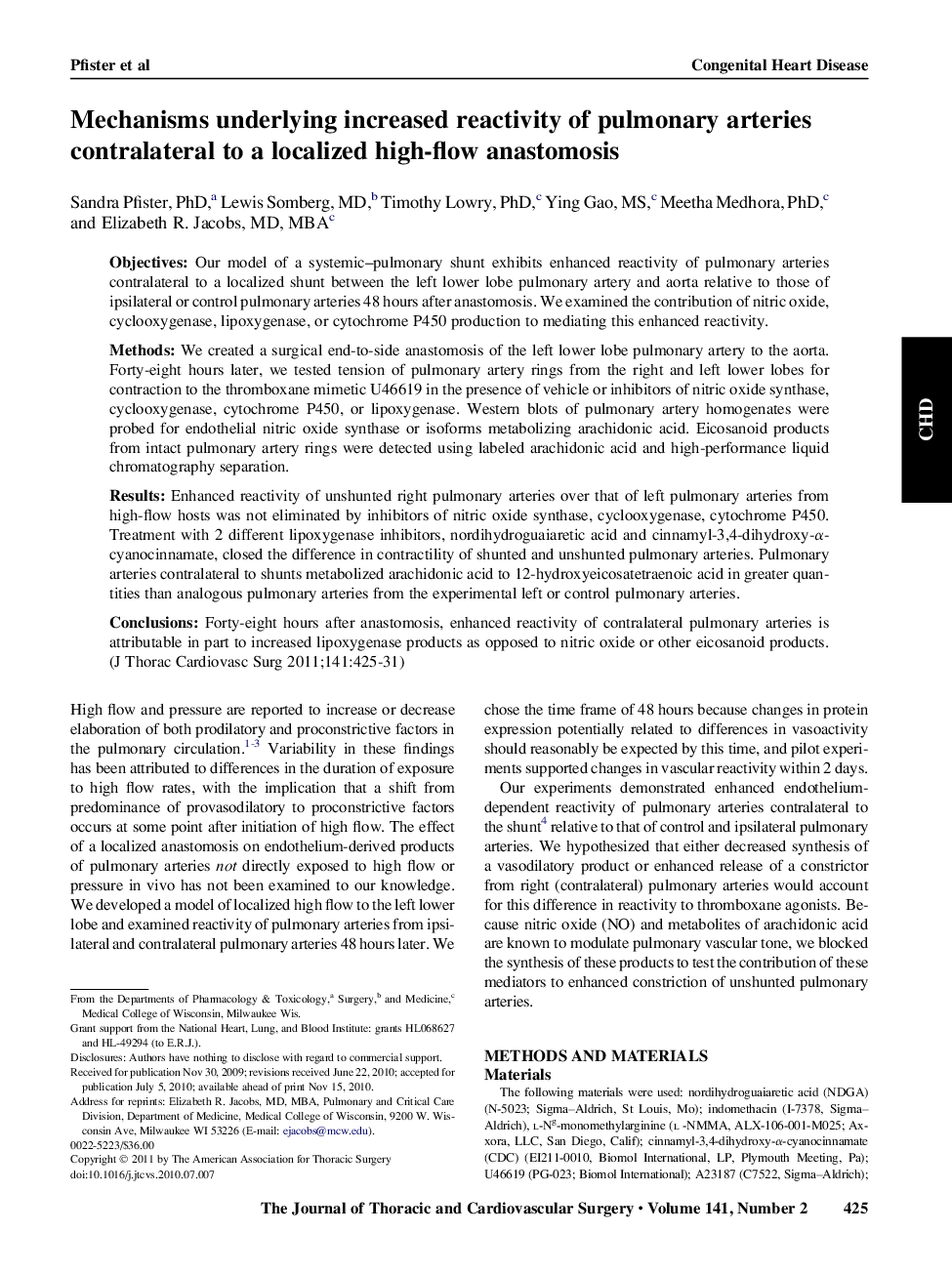| کد مقاله | کد نشریه | سال انتشار | مقاله انگلیسی | نسخه تمام متن |
|---|---|---|---|---|
| 2982878 | 1578652 | 2011 | 7 صفحه PDF | دانلود رایگان |

ObjectivesOur model of a systemic–pulmonary shunt exhibits enhanced reactivity of pulmonary arteries contralateral to a localized shunt between the left lower lobe pulmonary artery and aorta relative to those of ipsilateral or control pulmonary arteries 48 hours after anastomosis. We examined the contribution of nitric oxide, cyclooxygenase, lipoxygenase, or cytochrome P450 production to mediating this enhanced reactivity.MethodsWe created a surgical end-to-side anastomosis of the left lower lobe pulmonary artery to the aorta. Forty-eight hours later, we tested tension of pulmonary artery rings from the right and left lower lobes for contraction to the thromboxane mimetic U46619 in the presence of vehicle or inhibitors of nitric oxide synthase, cyclooxygenase, cytochrome P450, or lipoxygenase. Western blots of pulmonary artery homogenates were probed for endothelial nitric oxide synthase or isoforms metabolizing arachidonic acid. Eicosanoid products from intact pulmonary artery rings were detected using labeled arachidonic acid and high-performance liquid chromatography separation.ResultsEnhanced reactivity of unshunted right pulmonary arteries over that of left pulmonary arteries from high-flow hosts was not eliminated by inhibitors of nitric oxide synthase, cyclooxygenase, cytochrome P450. Treatment with 2 different lipoxygenase inhibitors, nordihydroguaiaretic acid and cinnamyl-3,4-dihydroxy-α-cyanocinnamate, closed the difference in contractility of shunted and unshunted pulmonary arteries. Pulmonary arteries contralateral to shunts metabolized arachidonic acid to 12-hydroxyeicosatetraenoic acid in greater quantities than analogous pulmonary arteries from the experimental left or control pulmonary arteries.ConclusionsForty-eight hours after anastomosis, enhanced reactivity of contralateral pulmonary arteries is attributable in part to increased lipoxygenase products as opposed to nitric oxide or other eicosanoid products.
Journal: The Journal of Thoracic and Cardiovascular Surgery - Volume 141, Issue 2, February 2011, Pages 425–431